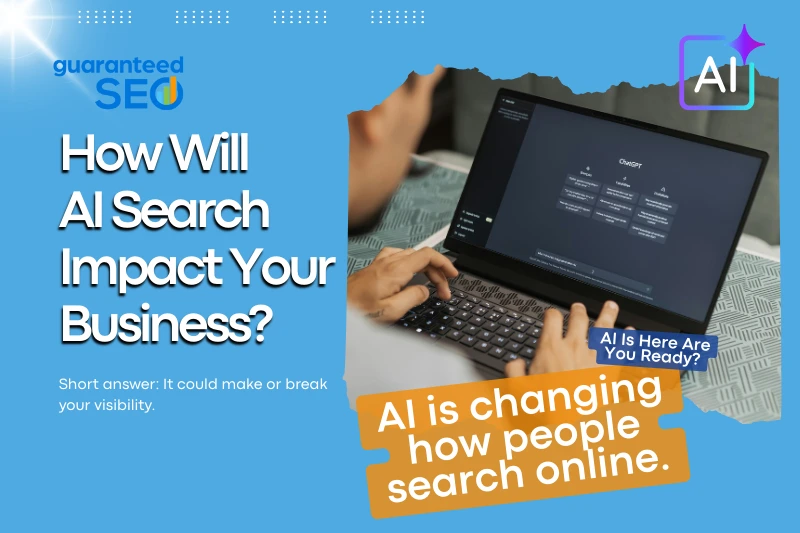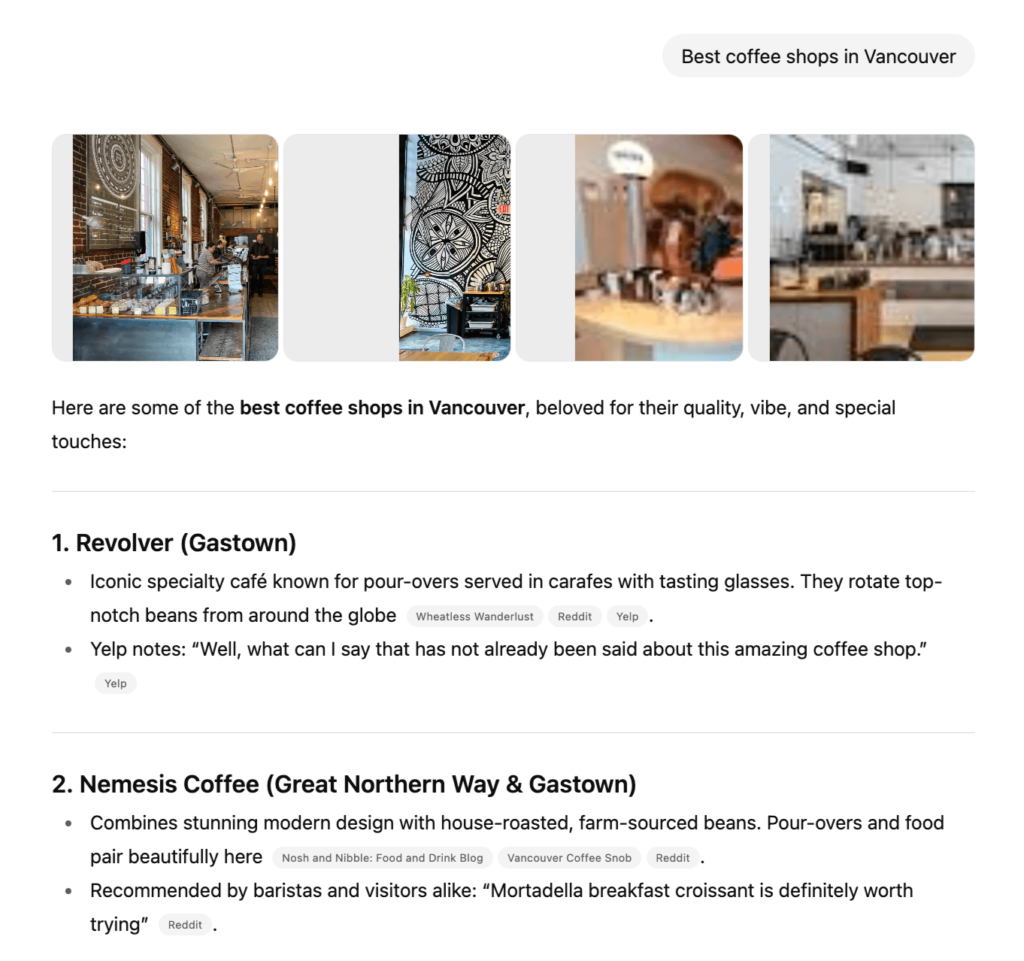The way people find information online has changed.
For years, “Google it” was the default answer when you had a question.
Now? People are asking ChatGPT, using Google’s AI Overviews, or searching through tools like Perplexity and Claude.
This shift isn’t just a passing trend; it’s a major change in how customers discover businesses. If your website isn’t ready for AI-driven search, you could be invisible to potential customers.

AI search is different from traditional search engines. Instead of showing a long list of links, AI search tools give you direct, conversational answers.
They pull information from across the web, summarize it, and present it like a friendly expert explaining the answer — often without requiring the user to click through to your website.
Examples of AI search tools:
“By 2026, AI-powered search is expected to handle over 30% of online queries.”
— Source: Gartner Research
This screenshot shows a standard Google results page. You can see how it delivers a long list of blue links, ads, and featured snippets. To get the full answer, the user usually needs to click through multiple websites and piece together the information themselves. This is how traditional search engines have worked for years — they act as a directory of links rather than giving you the full answer upfront.

This screenshot shows ChatGPT with browsing enabled, acting as an AI-powered search tool. Instead of providing a list of links, it gives a direct, conversational answer in plain language. The response is pulled from multiple sources, summarized, and presented as if a knowledgeable expert is explaining it to you. This saves time because you don’t need to click through different pages — the AI organizes and explains the information in one place.

Here’s the reality:
If AI search tools aren’t pulling information from your site, your business name won’t even be mentioned in the answer.
That means:
AI results tend to favor:
Let’s take a local search example:
If someone types “what is the best cleaning company in Vancouver?” into Google, the AI Overview may show a short paragraph naming a few agencies. Some businesses get mentioned, others don’t.
Your goal is to make sure you’re on that shortlist.

You can’t control every aspect of AI search, but you can make it more likely your business will be included in AI-driven answers.
Here’s how:
AI search isn’t a “someday” shift; it’s happening now. The brands that adapt early will dominate visibility, while late adopters risk being left out of the conversation entirely. Position yourself now, and you’ll be the business AI tools recommend tomorrow.
The businesses most at risk are those that have “evergreen” websites that haven’t been touched in years. Even if your information was accurate once, AI models tend to prioritize fresher, more complete data, meaning your competitors with updated content will outrank and outshine you.
At Guaranteed SEO, we’ve been helping businesses adapt to major search changes for nearly 30 years, and AI search is the biggest shift we’ve ever seen.
We use AI tools to work smarter and faster, but we never let AI do all the thinking. Every recommendation, strategy, and piece of content is guided by real people who understand your business and your goals. AI is a tool, not the decision-maker.
Here’s what we can do for you:
AI search uses artificial intelligence to answer questions directly, instead of just showing a list of website links. Tools like ChatGPT, Google AI Overviews, and Perplexity summarize information from multiple sources into one clear response.
Traditional SEO focuses on ranking higher in search engine results pages (SERPs). AI search focuses on providing the best, most relevant answer to a query, which may or may not include clickable links.
If your content is outdated, unclear, or lacks structured data, AI may skip over your site in favor of competitors with better-optimized information.
Yes. The strategies overlap, clear, well-structured, and fact-based content helps both traditional search engines and AI-driven search tools understand and recommend your business.
It varies, but most businesses start seeing improved AI visibility within 2–3 months of making targeted updates to their content and structure.
Include accurate business details, location, and services in a clear, structured format on your site.
Yes. Google AI Overview often lists local businesses when location is part of the search — but only if your online information is current and optimized.